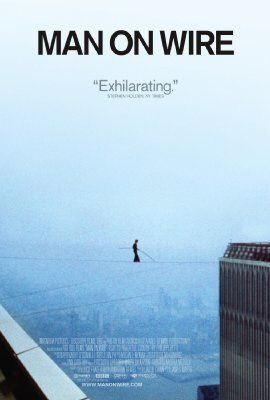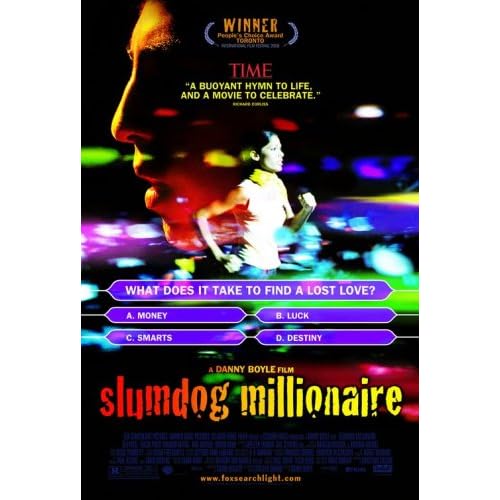Monday, January 5, 2009
Why We Keep Falling for Financial Scams
Intelligent people have long been ruined by frauds. Psychologist Stephen Greenspan, who specializes in gullibility, explores why investors continue to be swindled -- and how he came to lose part of his savings to Bernard Madoff.
By STEPHEN GREENSPAN
![[anatomy of gullibility]](http://s.wsj.net/public/resources/images/OB-CX033_gullib_G_20090102184847.jpg) Illustration by Mick Coulas
Illustration by Mick CoulasThere are few areas where skepticism is more important than how one invests one's life savings. Yet intelligent and educated people, some of them naive about finance and others quite knowledgeable, have been ruined by schemes that turned out to be highly dubious and quite often fraudulent. The most dramatic example of this in American history is the recent announcement that Bernard Madoff, a highly regarded money manager and a former chairman of Nasdaq, has for years been running a very sophisticated Ponzi scheme, which by his own admission has defrauded wealthy investors, charities and other funds of at least $50 billion.
Financial scams are just one of the many forms of human gullibility -- along with war (the Trojan Horse), politics (WMDs in Iraq), relationships (sexual seduction), pathological science (cold fusion) and medical fads. Although gullibility has long been of interest in works of fiction (Othello, Pinocchio), religious documents (Adam and Eve, Samson) and folk tales ("The Emperor's New Clothes," "Little Red Riding Hood"), it has been almost completely ignored by social scientists. A few books have focused on narrow aspects of gullibility, including Charles Mackey's classic 19th-century book, "Extraordinary Popular Delusion and the Madness of Crowds" -- most notably on investment follies such as Tulipmania, in which rich Dutch people traded their houses for one or two tulip bulbs. In my new book "Annals of Gullibility," based on my academic work in psychology, I propose a multidimensional theory that would explain why so many people behave in a manner that exposes them to severe and predictable risks. This includes myself: After I wrote my book, I lost a good chunk of my retirement savings to Mr. Madoff, so I know of what I write on the most personal level.
A Ponzi scheme is a fraud in which invested money is pocketed by the schemer and investors who wish to redeem their money are actually paid out of proceeds from new investors. As long as new investments are expanding at a healthy rate, the schemer is able to keep the fraud going. Once investments begin to contract, as through a run on the company, the house of cards quickly collapses. That is what apparently happened with the Madoff scam, when too many investors -- needing cash because of the general U.S. financial meltdown in late 2008 -- tried to redeem their funds. It seems Mr. Madoff could not meet these demands and the scam was exposed.
The Timothy Leary Archive
 The Timothy Leary Archive covers forty years of lectures, TV guest appearances, performance art, talk shows, and experimental films from Timothy's personal archives.
The Timothy Leary Archive covers forty years of lectures, TV guest appearances, performance art, talk shows, and experimental films from Timothy's personal archives.2008: Bush's Last Year By The Numbers
By Ryan Powers
 President Bush issued a statement yesterday in which he heralded New Year's day as "an opportunity to remember the events of the past and look forward with hope to the year ahead." But as Bush looks forward to leaving office, the nation is stuck with the results of many of the Bush administration's failed policies.
President Bush issued a statement yesterday in which he heralded New Year's day as "an opportunity to remember the events of the past and look forward with hope to the year ahead." But as Bush looks forward to leaving office, the nation is stuck with the results of many of the Bush administration's failed policies.
To mark the passing of Bush's last full year in office, ThinkProgress rounded up statistics on some of the most significant effects of Bush rule in 2008:
- Number Of U.S. Troops Killed in Iraq: 322.
- Number Of U.S. Troops Killed in Afghanistan: 151.
- Number Of Jobs Lost: 1.9 million.
- Number Of Banks Federal Government Now Owns Stock In: 206.
- Number Of Uninsured Americans: 47.5 million.- Change In Housing Prices: declined 18 percent.
- Change In Health Insurance Premiums: increased 5 percent.
- Change In Number Of Delinquent Mortgages: increased 75 percent.
- Change In Use Of Food Stamps: increased 17 percent.
- Change In Dow Jones Industrial Average: declined 35 percent.
- Change In Bush Approval Rating: declined 9 percent to 29 percent.
Paul Krugman noted recently that the Bush administration's failings have often been obscured in the short-run because the White House was particularly effective at inventing an alternate reality that it then "impressed on the public." In 2008, however, despite its repeated attempts to wish it away, the reality of its domestic policy failures caught up with Bush administration and the nation.
Public Domain Day 2009
Yes, folks, it's Public Domain Day! And it's international! There are little Public Domain Day virtual commemorations going on in places like Poland and Switzerland. Spread the word!
Australian politician (and sheep breeder) James Guthrie ("A world history of sheep and wool")
American film composer Edward H. Plumb ("Bambi" and many other Disney films)
American hymnist George Bennard ("The Old Rugged Cross")
British painter and illustrator Lucy Kemp-Welch (the original edition of "Black Beauty")
American screenwriter Jack Henley ("Bonzo Goes to College")
American writer J. P. McEvoy ("Dixie Dugan")
American author Betty MacDonald ("Mrs. Piggle-Wiggle")
British poet Robert Service ("The Cremation of Sam McGee", etc.)
English poet Alfred Noyes ("The Highwayman")
English music scholar Percy Scholes ("The Oxford Companion to Music")
American artist and author Marjorie Flack ("The Story About Ping")
American writer Johnston McCulley (creator of "Zorro")
British aircraft manufacturer Alliott Verdon Roe (as in Avro, as in the Arrow)
Serbian geophysicist Milutin Milanković (early proponent of ice ages)
British author and translator Lionel Giles (translator of the most widely-published English edition of Sun-Tzu's "Art of War")
Romanian-British rabbi and scholar Shulem Moshkovitz (the Shotzer Rebbe)
American financial analyst John Moody (of Wall Street fame)
A more extensive, but nowhere near complete list is reproduced below. See also Wikipedia's list of deaths in 1958 and the New General Catalog of Old Books and Authors 1958 deaths page.
Across the pond in the European Union, some other non-EU countries, and certain other countries around the world, being the second-largest copyright universe where the general term is "life plus seventy", copyrights by sole authors, or the last-surviving of multiple authors, who died in 1938, expired today. 1938 was an especially bad year in Europe, where many literary, scientific, political, and religious creators fell victim to Nazi persecution and Stalinist purges.
Some of the more interesting members of the 1938 class of deceased authors include:
Danish bacteriologist Hans Christian Gram (of Gram staining fame)
British-Canadian author, conservationist, and literary fraud Archie Belaney (Grey Owl)
Latvian-born ethnologist and musicologist Abraham Zevi Idelsohn (to whom the lyrics to "Hava Nagila" are attributed)
American cartoonist E. C. Segar (creator of "Popeye")
American illustrator Johnny Gruelle (creator of "Raggedy Ann")
American lawyer Clarence Darrow (of "Scopes Monkey Trial" fame)
American songwriter James Thornton ("When You Were Sweet Sixteen", written in 1898)
Japanese martial artist Kano Jigoro (founder of judo)
American industrialist Harvey Samuel Firestone (of tire fame)
A more extensive, but again far from complete list is reproduced below. See also Wikipedia's list of deaths in 1938 and the New General Catalog of Old Books and Authors 1938 deaths page.
The 1938 death class of authors are also now entering the public domain in the United States in respect of their unpublished works, which means that hundreds of thousands of archival documents are now out of copyright. In Canada, unfortunately, it is only published works and other works to which the general term of copyright applies, which came into the public domain today. Unpublished written works by authors who died in 1958 are still copyrighted in Canada, even though their published works now are not. Thanks to the ludicrously long Canadian "transitional period" for such copyrights, which started counting down ten years ago, not a single additional unpublished archival document will enter the public domain in Canada for another forty years, meaning that some documents from the mid-19th century will remain copyrighted in Canada for nearly two centuries after their creation.
But in any event, the public domain advanced a little last night - even if it was delayed by a leap second. The collective culture of the world has been enriched. And not just in the traditional fields that are associated with copyright, such as music, literature, and art, but all areas of human endeavour: sciences and humanities, religion, mathematics, law, politics, journalism, medicine, translation, linguistics, drama, history, and scholarship in every field.
It's your public domain, your common cultural heritage, and your right to use. Happy Public Domain Day 2009!
Did you hear FDR prolonged the Great Depression?
Conservatives' newest talking point -- designed to stop Congress from passing an economic stimulus package -- is breathtaking.
By David Sirota
 If you're like me, you sometimes find yourself speechless when confronted with abject insanity.
If you're like me, you sometimes find yourself speechless when confronted with abject insanity.
If you're like me, for instance, you were dumbfounded when "Forrest Gump" beat out "Pulp Fiction" for best picture; when HBO's "Sopranos" received more accolades than "The Wire"; and when George W. Bush insisted Iraqi airplanes were about to drop WMD on American cities.
So if you're like me, you probably understand why I was momentarily tongue-tied last week after running face-first into conservatives' newest (and most ridiculous) talking point: the one designed to stop Congress from passing an economic stimulus package.
Eve appearance on Fox News, I pointed out that most mainstream economists believe the government must boost the economy with deficit spending. That's when conservative pundit Monica Crowley said we should instead limit such spending because President Franklin Roosevelt's "massive government intervention actually prolonged the Great Depression." Fox News anchor Gregg Jarrett eagerly concurred, saying "historians pretty much agree on that."
Of course, I had recently heard snippets of this silly argument; right-wing pundits are repeating it everywhere these days. But I had never heard it articulated in such preposterous terms, so my initial reaction was paralysis, the mouth-agape, deer-in-the-headlights kind. Only after collecting myself did I say that such assertions about the New Deal were absurd. But then I was laughed at, as if it was hilarious to say that the New Deal did anything but exacerbate the Depression.
Afterward, suffering pangs of self-doubt, I wondered whether I and most of the country were the crazy ones. Sure, the vast majority of Americans think the New Deal worked well. But are conservatives right? Did the New Deal's "massive government intervention prolong the Great Depression?"
Ummm ... no.
http://www.salon.com/opinion/feature/2009/01/02/sirota_fdr_depression/
PNAC: Palin's Pentagon In Waiting?
 It looks like Bill Kristol may be making good on his threat to revive the Project for the New American Century. Since May, visitors to PNAC's website were informed that "this account has been suspended," but now the website is back up, though it does not seem to have been updated with any new material.
It looks like Bill Kristol may be making good on his threat to revive the Project for the New American Century. Since May, visitors to PNAC's website were informed that "this account has been suspended," but now the website is back up, though it does not seem to have been updated with any new material.
PNAC's militaristic ultra-nationalism is implicated in some of the worst mischief of the Bush years, from the "global war on terror" to the invasion of Iraq to President Bush's support for Israel's refusal to negotiate with the Palestinians. Many of its members served as advisers to John McCain's presidential campaign. Bill Kristol is still listed as PNAC's chairman, and is known to be "exceptionally close" to the senator. McCain's top foreign policy aide, Randy Scheunemann, serves as PNAC's project director. McCain spokesperson Michael Goldfarb is also listed as a PNAC research associate.
We should consider what PNAC's possible revival means for the future of Sarah Palin. Palin was first "identified as a potential future leader of the neoconservative cause" in June 2007 when the Weekly Standard's annual summer cruise docked in Juneau. Several editors - including Bill Kristol - had dinner with Palin. Scott Horton reported that in the following months, the Standard published a number of laudatory items about Palin "starting with a paean entitled 'The Most Popular Governor' that ran right after" the dinner.
http://wonkroom.thinkprogress.org/2008/11/10/pnac-palins-pentagon-in-waiting/
NASA scientists: over 2 trillion tons of ice has melted since 2003

 New satellite data presented by NASA scientists shows the loss of an estimated 2 trillion tons of ice from Greenland, the Antarctic and the North Poll: proof positive of global warming's dramatic effects, they claimed.
New satellite data presented by NASA scientists shows the loss of an estimated 2 trillion tons of ice from Greenland, the Antarctic and the North Poll: proof positive of global warming's dramatic effects, they claimed.
"'More than half of the loss of landlocked ice in the past five years has occurred in Greenland, based on measurements of ice weight by NASA's GRACE satellite,' said NASA geophysicist Scott Luthcke, in a report by the Environmental News Network.
The Greenland melting, added Luthcke, appears to be accelerating.
One immediate effect of this progressive melting is a spike in the intensity and frequency of massive wildfires in the American West, according to one expert who says more than half of the region could be claimed by fire in the next century.
Tom Swetnam, a leading fire ecologist at the University of Arizona, told CBS's 60 Minutes that a temperature increase in the West of just one degree had contributed to a four-fold increase in fires in the area.
A 2007 study by the National Center for Atmospheric Research and Georgia Institute of Technology determined that global warming's effect on wind patterns and sea temperatures nearly doubled the number of hurricanes a year in the Atlantic Ocean over the past century.
"Anticipated direct health consequences of climate change include injury and death from extreme weather events and natural disasters, increases in climate-sensitive infectious diseases, increases in air pollution-related illness, and more heat-related, potentially fatal, illness," claims a report presented at the 2007 congress of the American Academy of Pediatrics.
"Within all of these categories, children have increased vulnerability compared with other groups," it said.
President-elect Obama has said the application of science in the fight against global warming "is key to our survival," and appointed John Holdren, an award-winning environmental policy professor at Harvard University, to head the Office of Science and Technology Policy and co-chair the president's Council of Advisors on Science and Technology.
Obama called Holdren "one of the most passionate and persistent voices of our time about the growing threat of climate change".
http://rawstory.com/news/2008/NASA_scientists_over_2_trillion_tons_0102.html
Making "Duck Soup" Out of 2009
by Bill Moyers and Michael Winship
 The famous Marx Brothers movie "Duck Soup" offered comic relief in the darkest of times. (Photo: Dr. Marco's movie scans)
The famous Marx Brothers movie "Duck Soup" offered comic relief in the darkest of times. (Photo: Dr. Marco's movie scans)
As 2008 ends and this New Year begins, with all its fledgling promise despite turmoil and crisis, it's also that time when the media offers its lists of ten best or worst this and that of the previous year, an exercise that simultaneously entertains and infuriates.
Forced at knifepoint to make such lists, at least ours would be a little different. One would be favorite headlines of the year from The Onion, the hilarious weekly that doesn't bill itself as "America's finest news source" for nothing. If you can read it without laughing, you probably have been paying too much attention to your 401(k).
Some of the ones we liked best:
$700 billion bailout celebrated with lavish $800 billion executive party.
GM covered with giant tarp until it has money to work on cars again.
American Airlines now charging fees to non-passengers.
China recalls everything.
Housing crisis vindicates guy who still lives with parents.
Factual error found on internet.
Of course, the problem The Onion's editors have is that reality too often resembles parody. Take the story of Chip Saltsman, the guy campaigning to be chairman of the Republican National Committee by promoting himself with a CD featuring a song called, "Barack, the Magic Negro." That ditty, you'll recall, was made famous on Rush Limbaugh's minstrel show, as sung by an Al Sharpton impersonator. Even The Onion couldn't come up with that one.
Kenneth Turan Picks His Favorite Films Of 2008
by Kenneth Turan
I'm departing from tradition and naming it No. 1 because watching this film was like seeing an old friend long presumed dead. Slumdog is an updated version of an old-fashioned Hollywood-style romantic melodrama. If you think this kind of thing is easy to do, you haven't been going to the movies lately.
As to the other nine slots, I have taken the liberty of doubling up films on occasion to make it easier to acknowledge deserving work. Here goes:

Mathieu Amalric and Catherine Deneuve star in one of the best of a great crop of French films, A Christmas Tale. Why Not Productions
http://www.npr.org/templates/story/story.php?storyId=98841453
Harry's Picks For The Top Ten Films of 2008!!!

















